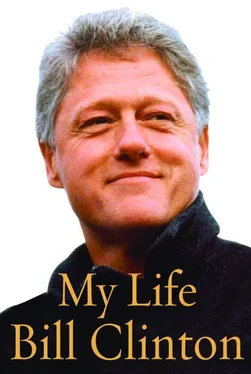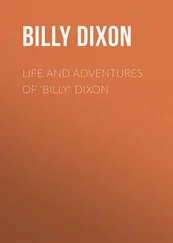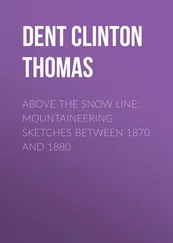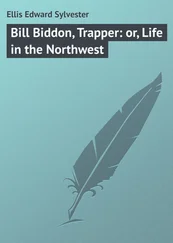The city’s attraction was amplified by grand hotels, an opera house, and, beginning in the midnineteenth century, gambling. By the 1880s, there were several open gambling houses, and Hot Springs was on its way to being both an attractive spa and a notorious town. For decades before and during World War II, it was run by a boss worthy of any big city, Mayor Leo McLaughlin. He ran the gambling with the help of a mobster who moved down from New York, Owen Vincent “Owney” Madden. After the war, a GI ticket of reformers headed by Sid McMath broke McLaughlin’s power in a move that, soon after, made the thirty-five-year-old McMath the nation’s youngest governor. Notwithstanding the GI reformers, however, gambling continued to operate, with payoffs to state and local politicians and law-enforcement officials, well into the 1960s. Owney Madden lived in Hot Springs as a “respectable” citizen for the rest of his life. Mother once put him to sleep for surgery. She came home afterward and laughingly told me that looking at his X-ray was like visiting a planetarium: the twelve bullets still in his body reminded her of shooting stars.
Ironically, because it was illegal, the Mafia never took over gambling in Hot Springs; instead, we had our own local bosses. Sometimes the competing interests fought, but in my time, the violence was always controlled. For example, the garages of two houses were bombed, but at a time when no one was home.
For the last three decades of the nineteenth century and the first five of the twentieth, gambling drew an amazing array of characters to town: outlaws, mobsters, military heroes, actors, and a host of baseball greats. The legendary pool shark Minnesota Fats came often. In 1977, as attorney general, I shot pool with him for a charity in Hot Springs. He killed me in the game but made up for it by regaling me with stories of long-ago visits, when he played the horses by day, then ate and gambled up and down Central Avenue all night, adding to his pocketbook and his famous waistline.
Hot Springs drew politicians too. William Jennings Bryan came several times. So did Teddy Roosevelt in 1910, Herbert Hoover in 1927, and Franklin and Eleanor Roosevelt for the state’s centennial in 1936. Huey Long had a second honeymoon with his wife there. JFK and Lyndon Johnson visited before they were Presidents. So did Harry Truman, the only one who gambled—at least the only one who didn’t hide it.
The gambling and hot-water attractions of Hot Springs were enhanced by large brightly lit auction houses, which alternated with gambling spots and restaurants on Central Avenue on the other side of the street from the bathhouses; by Oaklawn racetrack, which offered fine Thoroughbred racing for thirty days a year in the spring, the only legal gambling in the city; by slot machines in many of the restaurants, some of which even kids were allowed to play if they were sitting on their parents’ laps; and by three lakes near the city, the most important of which was Lake Hamilton, where many of the city’s grandees, including Uncle Raymond, had large houses. Thousands of people flocked to the lake’s motels for summer vacation. There was also an alligator farm in which the largest resident was eighteen feet long; an ostrich farm, whose residents sometimes paraded down Central Avenue; Keller Breland’s IQZoo, full of animals and featuring the alleged skeleton of a mermaid; and a notorious whorehouse run by Maxine Harris (later Maxine Temple Jones), a real character who openly deposited her payoffs in the local authorities’ bank accounts and who in 1983 wrote an interesting book about her life: “ Call Me Madam ” : The Life and Times of a Hot Springs Madam. When I was ten or eleven, on a couple of occasions my friends and I entertained ourselves for hours by calling Maxine’s place over and over, tying up her phone and blocking calls from real customers. It infuriated her and she cursed us out with salty and creative language we’d never before heard from a woman, or a man, for that matter. It was hilarious. I think she thought it was funny, too, at least for the first fifteen minutes or so. For Arkansas, a state composed mostly of white Southern Baptists and blacks, Hot Springs was amazingly diverse, especially for a town of only 35,000. There was a good-sized black population and a hotel, the Knights of the Pythias, for black visitors. There were two Catholic churches and two synagogues. The Jewish residents owned some of the best stores and ran the auction houses. The best toy store in town was Ricky’s, named by the Silvermans after their son, who was in the band with me. Lauray’s, the jewelry store where I bought little things for Mother, was owned by Marty and Laura Fleishner. And there was the B’nai B’rith’s Leo N. Levi Hospital, which used the hot springs to treat arthritis. I also met my first Arab-Americans in Hot Springs, the Zorubs and the Hassins. When David Zorub’s parents were killed in Lebanon, he was adopted by his uncle. He came to this country at nine unable to speak any English and eventually became valedictorian of his class and governor of Boys State. Now he is a neurosurgeon in Pennsylvania. Guido Hassin and his sisters were the children of the World War II romance of a Syrian-American and an Italian woman; they were my neighbors during high school. I also had a Japanese-American friend, Albert Hahm, and a Czech classmate, René Duchac, whose émigré parents owned a restaurant, The Little Bohemia. There was a large Greek community, which included a Greek Orthodox church and Angelo’s, a restaurant just around the corner from Clinton Buick. It was a great old-fashioned place, with its long soda fountain–like bar and tables covered with red-and-white checked tablecloths. The house specialty was a three-way: chili, beans, and spaghetti. My best Greek friends by far were the Leopoulos family. George ran a little café on Bridge Street between Central Avenue and Broadway, which we claimed was the shortest street in America, stretching all of a third of a block. George’s wife, Evelyn, was a tiny woman who believed in reincarnation, collected antiques, and loved Liberace, who thrilled her by coming to her house for dinner once while he was performing in Hot Springs. The younger Leopoulos son, Paul David, became my best friend in fourth grade and has been like my brother ever since.
When we were boys, I loved to go with him to his dad’s café, especially when the carnival was in town, because all the carnies ate there. Once they gave us free tickets to all the rides. We used every one of them, making David happy and me dizzy and sick to my stomach. After that I stuck to bumper cars and Ferris wheels. We’ve shared a lifetime of ups and downs, and enough laughs for three lifetimes. That I had friends and acquaintances from such a diverse group of people when I was young may seem normal today, but in 1950s Arkansas, it could have happened only in Hot Springs. Even so, most of my friends and I led pretty normal lives, apart from the occasional calls to Maxine’s bordello and the temptation to cut classes during racing season, which I never did, but which proved irresistible to some of my classmates in high school.
From fourth through sixth grades, most of my life ran up and down Park Avenue. Our neighborhood was interesting. There was a row of beautiful houses east of ours all the way to the woods and another row behind our house on Circle Drive. David Leopoulos lived a couple of blocks away. My closest friends among the near neighbors were the Crane family. They lived in a big old mysterious-looking wooden house just across from my back drive. Edie Crane’s Aunt Dan took the Crane kids, and often me, everywhere—to the movies, to Snow Springs Park to swim in a pool fed by very cold springwater, and to Whittington Park to play miniature golf. Rose, the oldest kid, was my age. Larry, the middle child, was a couple of years younger. We always had a great relationship except once, when I used a new word on him. We were playing with Rose in my backyard when I told him his epidermis was showing. That made him mad. Then I told him the epidermises of his mother and father were showing too. That did it. He went home, got a knife, came back, and threw it at me. Even though he missed, I’ve been leery of big words ever since. Mary Dan, the youngest, asked me to wait for her to grow up so that we could get married.
Читать дальше












